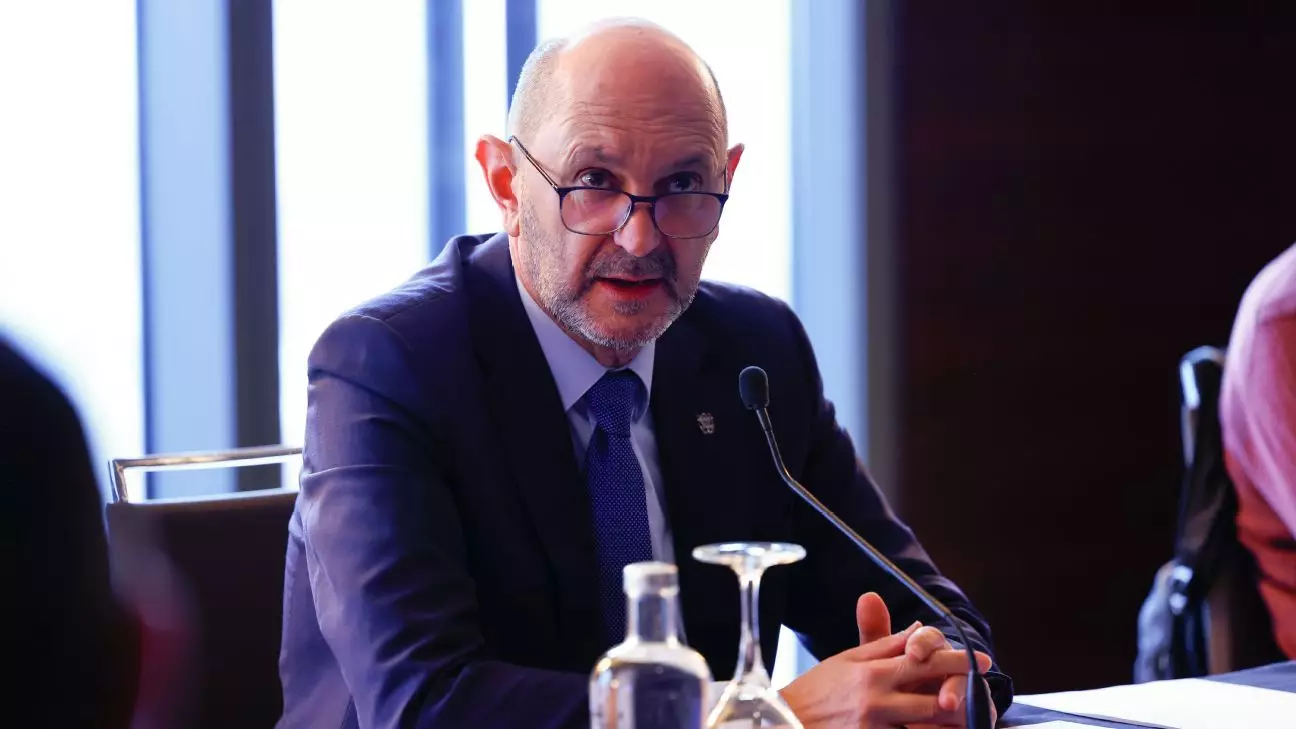In a significant event in the landscape of Spanish football, Rafael Louzan was elected as president of the Royal Spanish Football Federation (RFEF) on Monday. This development is noteworthy not only for the leadership transition but also against the backdrop of Spain being selected as one of the host nations for the 2030 World Cup, a decision jointly made with Morocco and Portugal. The confirmation from FIFA indicates a promising horizon for Spanish football, yet it arrives amidst a turbulent organizational climate that necessitates strong and effective leadership.
Background and Controversies Surrounding the Election
Louzan, who is 57 years old and has represented the Galician Football Federation, previously served on the RFEF executive committee since December 2019. He emerged victorious in the presidential election, defeating his sole challenger Salvador Gomar. However, the path to his election was overshadowed by controversy; Louzan has been facing a seven-year ban from holding public office due to misconduct during his time as president of the Pontevedra Provincial Council. This ruling, which Louzan is appealing, raises questions about the ethics and integrity of his leadership as he steps into a role that demands accountability and trust.
The recent history of the RFEF has been tumultuous, marked by the fallout from former president Luis Rubiales’s notorious unsolicited kiss on national team player Jenni Hermoso shortly after their Women’s World Cup victory. This incident triggered a crisis that led to Rubiales’ resignation and subsequent legal troubles, including a trial set for next year. The ripple effect of these events has significantly tarnished the reputation of the RFEF, highlighting the need for not just a stable leadership but a transformative one capable of restoring public faith in the organization.
Urgent Reforms Needed to Stabilize Spanish Football
Louzan’s term is set for four years, and during this period, he faces the monumental task of stabilizing a federation in crisis. The disruptions have escalated to a point where the Spanish Sports Council (CSD) suspended Pedro Rocha, Rubiales’ interim replacement, for serious infractions, increasing pressure on the organization. To compound the challenges, the Spanish government has introduced a special committee to supervise the RFEF’s operations, a move that reflects deep-seated concerns about governance and accountability.
Moreover, the urgency of reform is underscored by FIFA’s warning: unless a new president is securely positioned by the end of 2024, Spain may jeopardize its opportunity to host the World Cup matches. This adds a layer of complexity to Louzan’s presidency, as he must balance immediate governance issues with long-term strategic planning for one of football’s most prestigious global events.
Rafael Louzan’s presidency signals a new chapter for the RFEF, but it also highlights a fragile and complex situation that requires immediate and decisive action. The implications of his leadership will resonate far beyond the confines of the federation itself, potentially impacting Spain’s trajectory in the global football community. As Louzan begins his tenure, all eyes will be on him to deliver not just results, but also integrity and stability to a beleaguered organization in desperate need of renewal.

